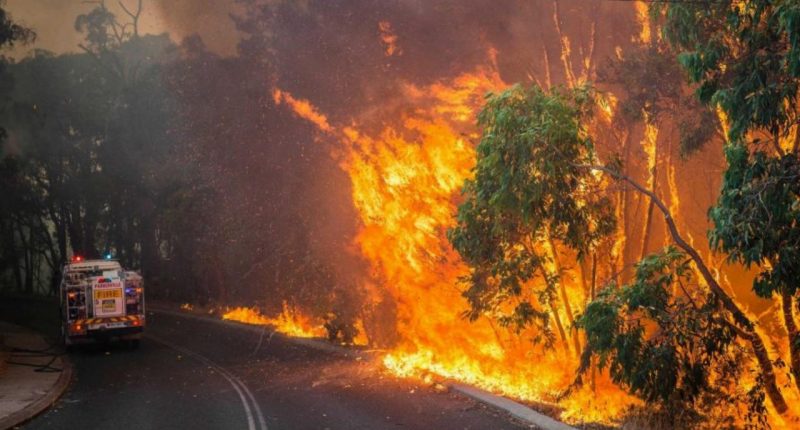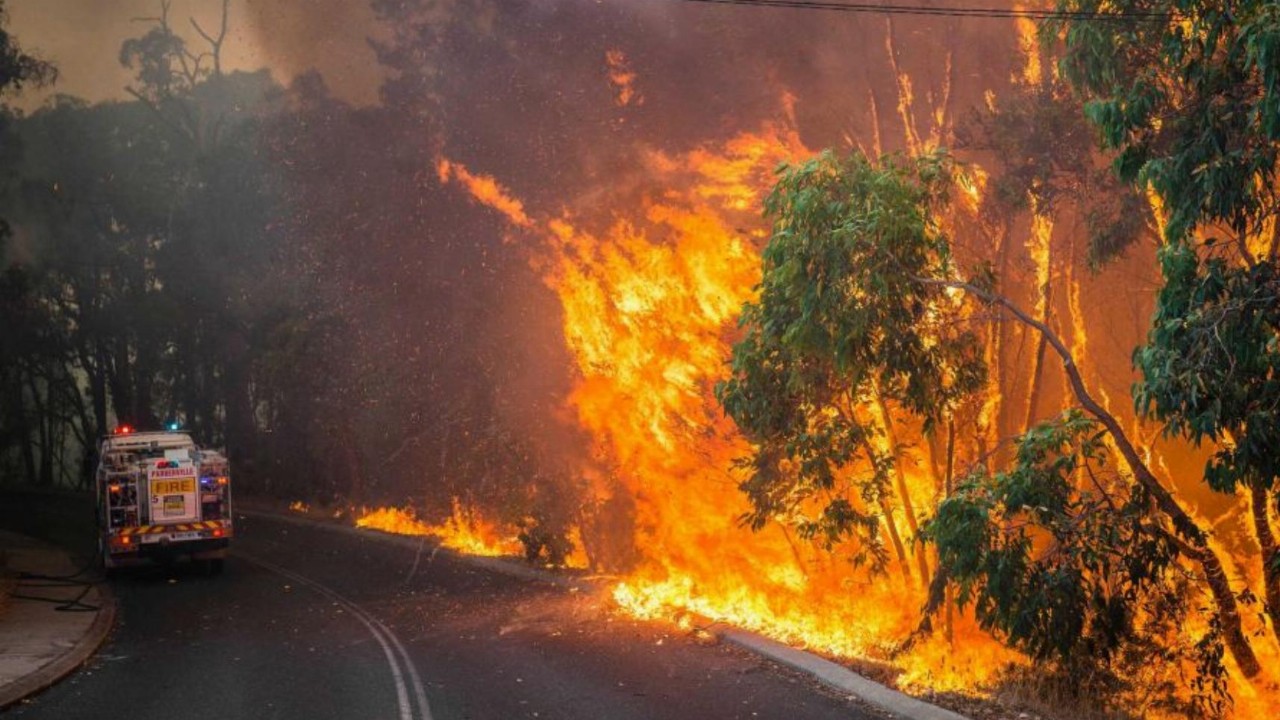- The Western Australian Court of Appeal has ruled that Western Power was partly liable for the 2014 Perth Hills bushfire which destroyed 57 homes
- Western Power avoided culpability in the first trial but has since been held 50 per cent liable, along with Thiess (35 per cent) and a landowner (15 per cent)
- Western Power was deemed negligent in particular for failing to establish a system of periodic examinations of “point of attachment poles”
- Slater and Gordon’s Rory Walsh said Western Power instead chose to argue that the responsibility to inspect the poles rested with private landowners
The Western Australian Court of Appeal ruled today that Western Power was partly liable for the January 2014 Perth Hills bushfire which destroyed 57 homes.
Western Power avoided culpability in the initial trial but has since been held partly responsible, together with its subcontractor Ventia (previously Thiess) and the owner of the land where a power pole fell, sparking the blaze.
The Court of Appeal assigned Western Power 50 per cent of the responsibility for the fire’s losses, with Ventia receiving 35 per cent and the landowner 15 per cent.
Western Power was deemed negligent in particular for failing to establish a system of periodic examinations of “point of attachment poles” which, despite being privately owned, support Western Power’s cables and to which metres monitoring energy usage are connected.
Slater and Gordon had previously led a group proceeding to attain compensation for 189 victims of the fires.
Slater and Gordon Practice Group Leader Rory Walsh said unlike its NSW and Victorian counterparts, Western Power refused to accept responsibility for undertaking safety inspections of the poles.
Mr Walsh said that Western Power instead chose to argue that the responsibility to inspect the poles rested with private landowners.
“There is estimated to be more than 100,000 uninspected poles across the network, the majority of which are wooden and situated in rural environments, although a precise number is unknown,” he said.
Mr Walsh stated that as a result of Western Power’s deliberate corporate policy, neither the utility nor the state regulator was aware of the age of these power poles, their current condition, their service life expectancy, the safety risks posed by individual attachment poles or even their precise numbers.
Private landowners were frequently unaware of the need to inspect the poles, Mr Walsh stated, as well as the significant bushfire risks posed by ageing, often untreated, wooden power poles in a rural setting.
“Now that this artificial legal argument has been rejected by the Court of Appeal, Western Power should stop evading its safety obligations and get on with fixing the problem before the coming fire season,” Mr Walsh said.
“That is what the West Australian public will expect of it and that process should start immediately.”
Slater and Gordon now anticipates further compensation will be available to the bushfire plaintiffs as a result of the decision.
Mr Walsh said the law firm remained critical of the now-overturned attempts by Western Power to seek orders to recover the State’s legal costs of the initial trial from bushfire victims, in circumstances where the State’s subcontractor, and now the utility itself, had been found responsible for causing the bushfire.
“The attempt to take money out of the pockets of victims who had already lost so much represented the worst kind of corporate bullying,” Mr Walsh said.
In its judgment, the court said Western Power was responsible for the greatest extent of the plaintiffs’ damage and loss.
“Western Power’s breach of its duty continued over many years, during which it failed to have any system for periodically inspecting point of attachment poles and during which the deterioration of the PA pole was discoverable by inspection,” it said.
“Western Power breached that duty in a context where it actually appreciated the nature and extent of the danger of the ignition and escape of fire posed by a collapsing point of attachment pole and the limited lifespan of an untreated wooden pole of that kind. Western Power also had the greatest knowledge, technical means and resources to deal with that risk.”







